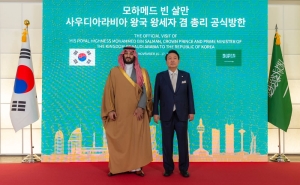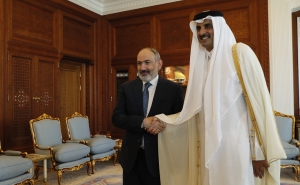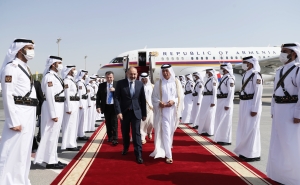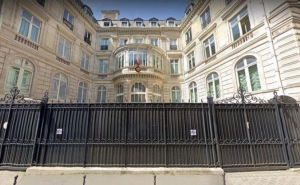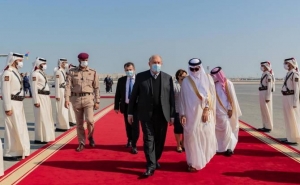 New Crisis in the Persian Gulf: Qatar’s Desire to Pursue an Independent Policy Is on the Basis
New Crisis in the Persian Gulf: Qatar’s Desire to Pursue an Independent Policy Is on the Basis

Another crisis is on the way in the Gulf region. On June 5 Bahrain announced it is cutting all ties and relations with Qatar. After several minutes similar statements were made by Saudi Arabia, Egypt and the United Arab Emirates. Later they were joined by Yemen, Libya and the Maldives. According to Reuters 3 Gulf States gave Qatari visitors and residents two weeks to leave. Qatar was also expelled from the Saudi-led coalition fighting a war in Yemen. The Gulf States accused Qatar of backing militant groups and spreading their ideology.
"Qatar embraces multiple terrorist and sectarian groups aimed at disturbing stability in the region, including the Muslim Brotherhood, Islamic State and al-Qaeda," Saudi state news agency SPA said. Riyadh also accused Qatar of "supporting Iranian-backed militants in its restive and largely Shi'ite Muslim-populated Eastern region of Qatif and in Bahrain". Qatar has repeatedly rejected such accusations in the past.
It should be noted that this is not the first such incident. In 2014 Saudi Arabia, the United Arab Emirates and Bahrain recalled their ambassadors from Doha because of the same reason. Then the diplomatic crisis lasted 8 months. But this time measures taken against Qatar are much tougher (suspension of air and sea communications).
It is clear that the allegations of support for several groups (especially, the "Muslim Brotherhood") are more than realistic, but they are not the main reason for the created situation. The main problem is in the disagreements between Qatar and Saudi Arabia (though Qatar has serious disagreements also with Egypt and Bahrain) and in issues related to the common policy of the Gulf.
During the recent years Qatar conducts foreign policy independent of Saudi Arabia, which became clear especially against the background of the events that have been going on in the Arab countries (Egypt, Syria) since 2010. And this seriously affects Saudi policy that tries to form a unified approach (and this basically coincides with the Middle East strategy of US President Donald Trump) at least within the framework of the Gulf Cooperation Council (Saudi Arabia, Bahrain, Qatar, Kuwait, UAE, Oman), but regularly meets resistance from Qatar.
Qatar’s independent policy becomes obvious also in its relations with Iran, which also is a deviation from the common course and a major concern in El Riyadh. The fact that Qatar congratulated Iranian President Hassan Rouhani on victory in presidential elections resulted in increased tensions and was accepted as an "obvious revolt" of Qatar.
As a result, we are witnessing "punitive" measures from Saudi Arabia.
-
 17:08
17:08The regular session of the Anti-corruption Policy Council takes place in Jermuk
-
 15:05
15:05The Prime Minister sends congratulatory messages to the supreme leader of Iran and the President of Iran
-
 11:11
11:11Armenia sends earthquake aid to Turkey
-
 10:43
10:43Commemoration of the Pontiff St. Sahak Partev
-
 09:16
09:16Some roads are closed and difficult to pass in Armenia
-
 19:55
19:55Phone conversation of the Foreign Minister of Armenia with the U.S. Assistant Secretary of State for European and Eurasian Affairs
-
 18:30
18:30Prime Minister Pashinyan and President Khachaturyan meet
-
 18:20
18:20Ararat Mirzoyan with Co-Chairman of the OSCE Minsk Group of France Brice Roquefeuil
-
 17:01
17:01Humans could land on Mars within 10 years, Musk predicts
-
 16:45
16:45France, US urge 'immediate' end to Nagorno Karabakh blockade
-
 16:01
16:01Blockaded Nagorno Karabakh launches fundraiser to support quake-hit Syria
-
 15:59
15:59Earthquake death toll in Turkey rises to 18,342
-
 15:43
15:43Ararat Mirzoyan Held a Telephone Conversation with Sergey Lavrov
-
 15:06
15:06French president rules out fighter jet supplies to Ukraine in near future
-
 14:47
14:475 Day Weather Forecast in Armenia
-
 14:44
14:44President Vahagn Khachaturyan wrote a note in the book of condolences opened in the Embassy of Syria in Armenia
-
 14:20
14:20Azerbaijan’s provocations impede establishment of peace and stability – Armenian FM tells Russian Co-Chair of OSCE MG
-
 12:57
12:57France representation to OSCE: Paris calls on Azerbaijan to restore freedom of movement through Lachin corridor
-
 11:40
11:40Command of Kosovo forces highly appreciated preparation of Armenian peacekeepers
-
 10:16
10:16The United States withdrew from sanctions against Syria for six months the provision of assistance after the earthquake
day
week
month
Humidity: %
Wind: km/h


